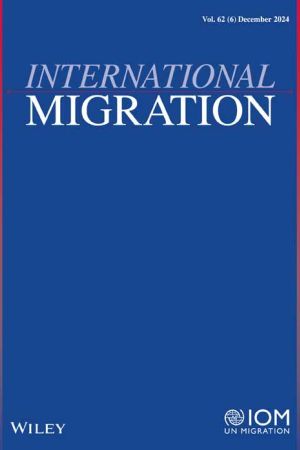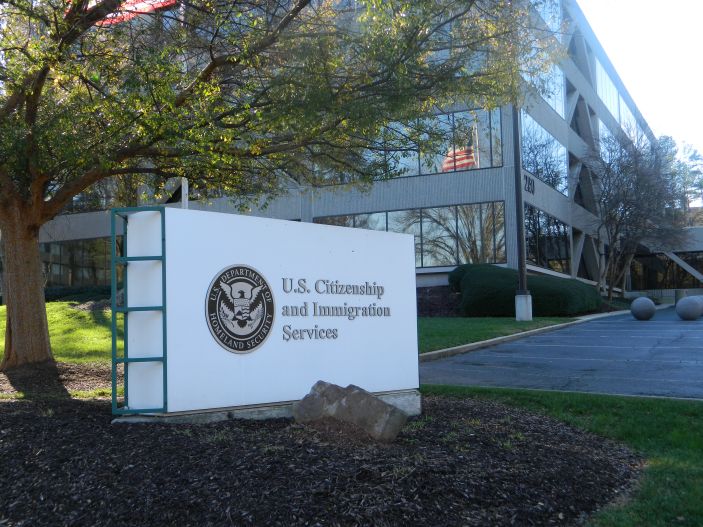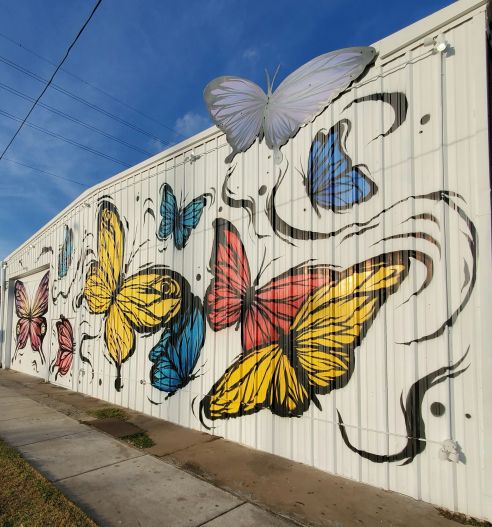Migrations Program
World Development Report 2023 Review Forum: Introduction

By Our Faculty
Article
Additional Information
Program
Type
- Article
Publication Details
Publication Year: 2024
Journal: International Migration
Trump Team Eyes Using State And Local Police For Immigration Enforcement

Stephen Yale-Loehr, Migrations
President-elect Donald Trump's immigration advisers are discussing plans to enlist local law enforcement to help the federal government deport undocumented immigrants, according to sources familiar with the matter.
Additional Information
How Sanctuary Cities Are Preparing For Trump's Mass Deportation Plans

Stephen Yale-Loehr, Migrations
Stephen Yale-Loehr, professor of immigration law, explains that sanctuary laws can slow down, but not stop, mass deportations.
Additional Information
U.S. Farm Groups Want Trump to Spare Their Workers from Deportation

Mary Jo Dudley, Migrations
Mary Jo Dudley, director of the Cornell Farmworker Program, discusses the impact that fear of enforcement against farms has on farmworkers.
Additional Information
Axios Explains: Roadblocks to Trump's Mass Deportations

Jaclyn Kelley-Widmer, Migrations
Jaclyn Kelley-Widmer, clinical professor of law, says it is unlikely that a coordinated effort across all federal and local agencies for mass deportations would be possible.
Additional Information
Trump’s Mass Deportation Plan ‘Raises Serious Constitutional Questions’

Marielena Hincapié, Migrations
Marielena Hincapié, distinguished immigration scholar, examines Donald Trump’s mass deportation plan.
Additional Information
What Houston Can Teach Cities about Immigrant Rights

Cornell Chronicle Interviews Shannon Gleeson
“Houston highlights how immigrant rights can be advanced in a place resistant to change,” writes Gleeson (Migrations) in a new coauthored book.
Additional Information
What Next? Activists on How to Move Past the Grief of Defeat.

Marielena Hincapié, Migrations
Marielena Hincapié, distinguished immigration scholar, explains the importance of taking space to grieve.
Additional Information
Fears New York Buildings’ Deadly Toll on Migratory Birds Could Be on the Rise

Andrew Farnsworth, Migrations
Andrew Farnsworth, visiting scientist at the Lab of Ornithology, says “We know that the estimate in New York City – close to 250,000 birds dying in collisions every year – is definitely an underestimate, no question.”
Additional Information
Faculty Gather to Celebrate Distinguished Cornell Career

Symposium Honors Stephen Yale-Loehr
A Nov. 8 symposium honored the immigration law scholar. Yale-Loehr's research and service shaped the Migrations initiative, now an Einaudi program.
